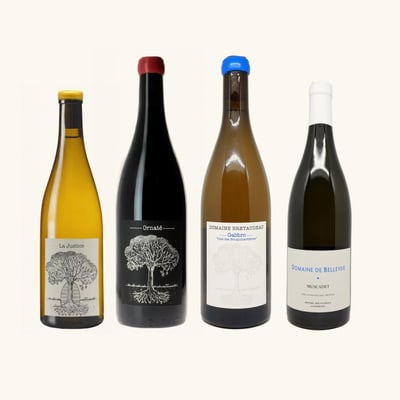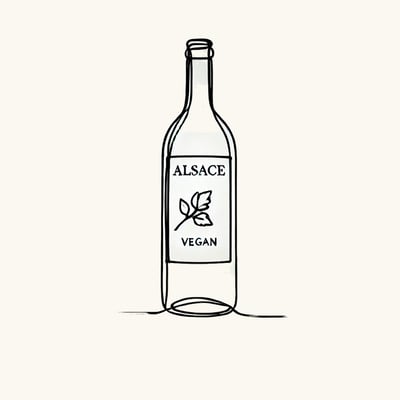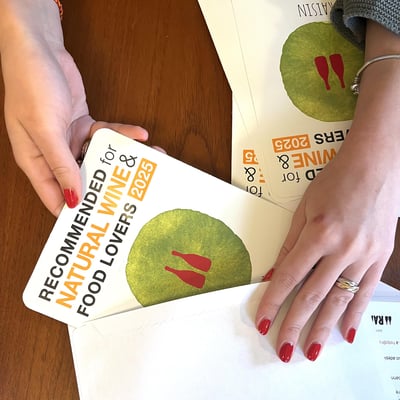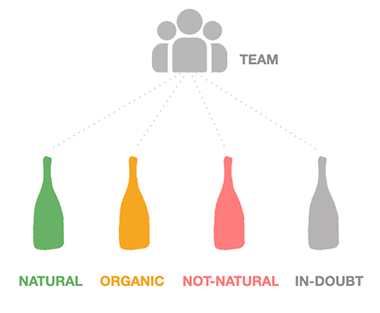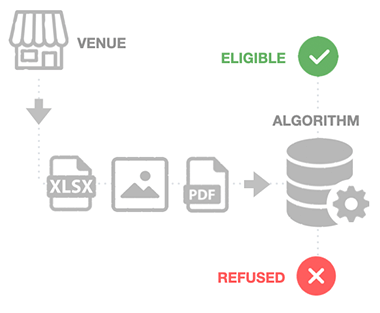December 10, 2024 - 1 comments
Should I decant my Natural Wine?
Decanting (or carafing) wine is a traditional practice with specific benefits depending on the wine. So when should it be used? With great bottles being drunk over the holiday season, let’s take a look into when, why, and how you should decant natural wine.

Young Red Wines:
Reason to Decant: These wines often have robust tannins and concentrated flavors that can be harsh or tight when first opened. Decanting helps soften tannins and release primary aromas (fruits, spices), while removing any reductive aromas you might find.
Aged Red Wines:
Reason to Decant: Older red wines often develop sediment as they age. Pour gently into a decanter to remove sediment and aerate the wine to "wake it up" from bottle aging. Careful, aged wines can be fragile. Overexposure to air can cause them to lose their nuanced aromas.
White Wines:
Reason to Decant: Though less common, some rich whites (e.g., Chardonnay, Viognier) or whites aged on lees can benefit from decanting to open up aromas or release reductive notes (smells of struck match, popcorn, brett). Usually, 15 - 30 minutes should be optimal for this.
Orange Wines:
Reason to Decant: Orange wines often have complex, earthy, tropical aromas that can be muted when first opened. Decanting helps these wines "breathe" and reveal their layers. Orange wines often also have a tight tannic grip. Decanting mellows these tannins, especially in younger wines.
Sparkling Wines:
Rarely Decanted: While unusual, some vintage Champagnes or traditional-method sparklers may benefit from brief decanting to release reductive aromas. However, this risks losing effervescence. Decant for a very short time before serving.
Rosé Wines:
Rarely Decanted: Rosé wines are generally light, fresh, and aromatic, so decanting is rarely necessary. However, there are exceptions for aged Rosé that might benefit from aeration to release subtle aromas or to remove reductive notes.
Be Careful, prolonged exposure to air can lead to oxidation, flattening aromas and flavors or occasionally causing unwanted faults like mouse. Avoid this by monitoring decanting time closely. Taste the wine periodically to check its evolution and don’t push it too far.
Pro tips:
- Use a wide-bottom decanter for young, tannic wines to maximize aeration.
- Use a narrow or standard decanter for older wines to minimize oxygen exposure.
- If you don’t have any decanter? Open your bottle an hour or so before drinking it, but keep tasting to find the optimum serving time.
- Most importantly: Always taste wines before you decant to determine if it’s needed. If you are already happy with the flavour, get it into glasses for everyone to enjoy!
For some fun: Decant your natural wine before serving it to your sibling, grandmother or grandfather that swears they don’t like natural wine. Hide the bottle from the table, and watch them enjoy a blind tasting that will surely open their mind!





